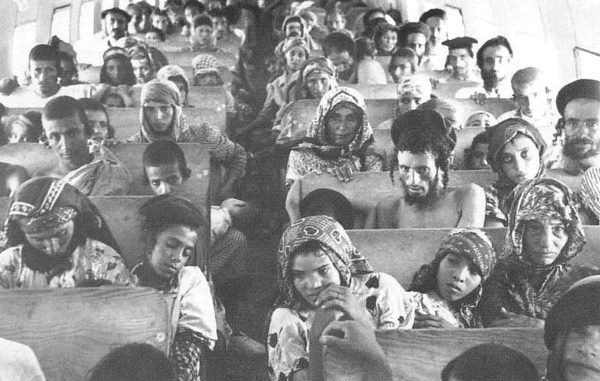
After 1948, the US invested funds in a mini-Marshall plan for the Middle East. But while Israel spent the money on housing projects and infrastructure to rehabilitate the Jewish refugees from Arab lands, the Arab states allocated it to UNRWA or just kept it for themselves. The 2008 US Congress resolution to recognise the rights of Jewish refugees squares the circle, argues Kobby Barda in Mida.
Yeshayahu (Si) Kennan was the spokesman for the Israeli delegation to the UN during the Marshall Plan. Kennan’s boss, Ambassador Abba Eban, rejected his proposal to demand from the American administration a parallel plan in the Middle East, arguing that the Arabs would use the money they received against Israel. Kennan then joined the American Zionist Council (AZC) and in this framework began to lobby for the implementation of a similar program in the Middle East. At that time there were about 1.6 million refugees and displaced persons in the Middle East – half of them Jews and half Arabs. Kennan’s desire was for the countries to use grants to rehabilitate the refugees in the countries they came to after the war.

Encouraged by the success of the Marshall Plan in Europe, the Americans sought to rehabilitate the Middle East by the same means. The Truman administration’s support for the establishment of the State of Israel ( contrary to Marshall’s position) created a sense of responsibility among the administration for the consequences of the declaration of independence and the War of Independence.
Against this backdrop, Kennan’s initiative found a sympathetic ear in Congress and the State Department. 164 members of Congress signed a proposal to carry out the initiative, and in response the Arab countries began to exert counter-pressure. Kennan then harnessed leading economists to persuade Congress that aid to Israel was good not only for Israel but also for the United States.
In September 1951, nearly two years after the establishment of UNRWA, Kennan’s efforts bore fruit: Congress approved $160 million in aid to rehabilitate the region: $68 million was granted to Israel, and the rest were distributed between Lebanon, Syria, Iraq, Egypt and Jordan.
The Story of the Whole Conflict
The manner in which these funds were distributed is one of those specific cases that in miniature, tell the story of the entire Arab-Israeli conflict: The young State of Israel invested these funds, which came several years ahead of reparations from Germany, in housing development and infrastructure, and in the tremendous effort to absorb the Jews who were escaping en-masse from Arab countries. In this way, Israel acted similarly to the European countries’ handling of the American aid funds that came from the Marshall Plan.
On the other hand, the Arab states allowed these funds to be swallowed up within UNRWA’s overall budget, or perhaps just kept it for themselves. Schwartz and Wilf’s book describes the mechanism used by the Arabs against the American administration: they allowed UNRWA to provide humanitarian aid to refugees and agreed in principle to huge projects for infrastructure construction that would advance their countries alongside the rehabilitation of the Palestinian refugees. In practice, the Arab governments were dragging their feet and preventing reconstruction from happening. The motive was to leverage the plight of the refugees as a means of delegitimizing the State of Israel. In retrospect, then, it appears that Abba Eban was right in opposing the plan.
The UNRWA monster has become a petri dish in which anomalies have multiplied as far as the treatment of refugees goes: Palestinian refugee status is inherited, UNRWA itself is not working to rehabilitate the refugees but only involved in humanitarian aid, and a large majority of its workers are Palestinians themselves. UNRWA has become a decisive factor in perpetuating the Arab-Israeli conflict, rather than in solving it.
In April 2008, a month before Israel’s 60th Independence Day, there were first signs of an American awakening: in the face of the “unquestionable rights” of the Palestinians, Congress decided to grant identical rights to the Jewish refugees who fled Arab countries. Congress instructed the president to determine that the rehabilitation of the refugees in their places is the way to solve the problem of the conflict in the Middle East, and the “refugees” refers to people who fled all Middle Eastern countries during the 1948 war.
The Trump administration’s decision to cease funding for UNRWA looks like closing a circle. Time will tell whether the move will succeed, but if this is indeed the case, it can be assumed that this is a significant step towards quelling the end of the Israeli-Arab conflict.

Leave a Reply